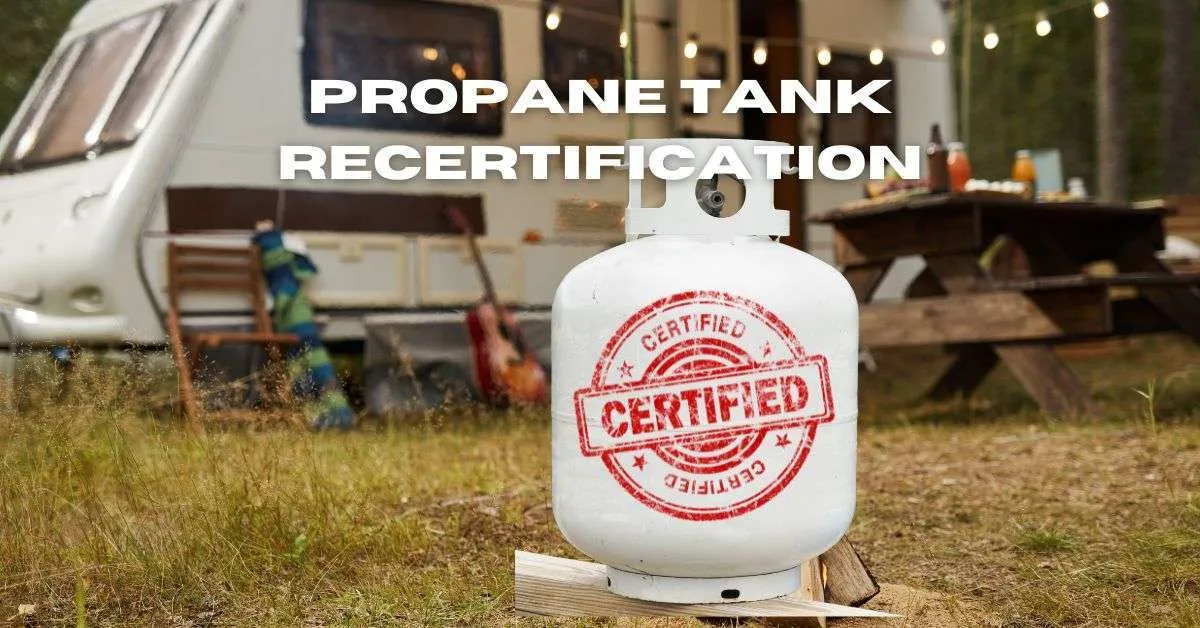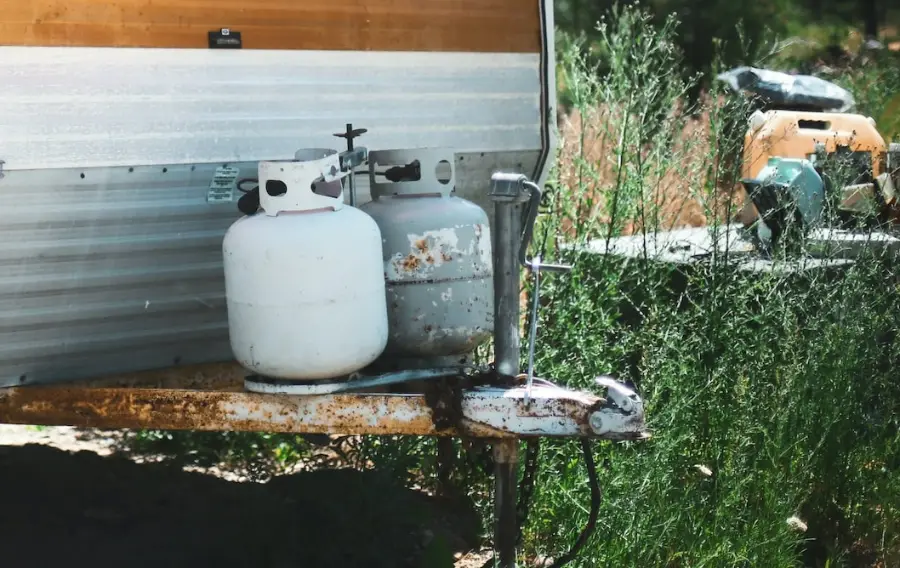How Many Times Can a Propane Tank Be Recertified? Propane Tank Recertification

Last updated on August 17th, 2023 at 04:44 am
Propane Tank Recertification is highly regulated. Hence, they require frequent recertification. These tanks are often certified for 10 to 12 years of use, but this value is subject to change, misuse or neglect can shorten their life. Once these 12 years are up, you can either replace the tank or have it recertified for an additional five years of use.
The propane tank is basically the heart of your propane-powered home. It plays the significant role of pumping propane gas to appliances, keeping your family warm, and your home or camper van more comfortable all year long.
This article explains all about propane tanks, their shelf lives, and what to do when the tank expires.
How Many Times Can a Propane Tank Be Recertified?

Propane tanks should be requalified every 5 or 10 years. This period may vary depending on the condition of the cylinder, type, and previous requalification method. You can tell a requalified tank from another by the E and H after the date.
What Is the Average Life Expectancy of a Propane Tank?
One of the most important questions that relate to propane tanks is how long they can last. Typically, they are designed for the long haul. The average, high-quality, properly maintained, above-ground, galvanized propane tank will last 30 years or more. Those cylinders made with aluminum and composite cylinders can last even longer.
It should be noted that the longevity of the propane tank depends on the size and use of the tank, as well as how well it is taken care of. For instance, cylinders installed underground are more likely to have a shorter life expectancy of 20 to 30 years.
How Are Recertified Propane Tanks Marked?
Just near the handle, you will notice a series of stamped markings usually informing you of the capacity rating and origination.
Often, the recertification date is indicated by a letter and not numbers. The letters A, B, C, and D correspond with a quarter of the calendar year. Any additional letters will indicate the type of recertification so you can determine the frequency of follow-up inspections.
Propane Tank Recertification
The manufacture date of your portable propane tank is stamped into its collar. Generally, tanks require Propane Tank Recertification between 5 and 12 years, depending on the manufacture date and other factors like visual defects. Larger tanks have a different recertification process. No worries if you’re unsure, AmeriGas experts will guide you through the process when you get your propane tanks filled!
How Do I Know if My Propane Tank Is Still Good?
Propane tanks are built to be resilient, considering they are designed to hold liquid propane gas under pressure and other extreme external conditions. Still, even the sturdiest of propane tanks have a shelf life. You are not likely to find an expiration date on the gas cylinder. However, it is important to have in mind that an expired tank can potentially cause fires and gas leaks.
The easier way to tell whether your propane tank is still good is to inspect the collar or the handle area of the propane tank. You will not get a direct answer, but rather an information on when the tank was manufactured or last recertified. With that and a little background information, you can gauge how useful life remains. This can be done by adding twelve years to the manufacture or requalification date.
What if You Overfill a Propane Tank?
Propane suppliers always know that it is important to leave space in the tank to expand propane. This explains why the tank gauge always reads 80% full, even after a refill.
Propane is known to expand with heat leading to a 17% increase in volume compared to water. Overfilling the tank could lead to problems such as leaks or explosions. Also, each tank should be installed with an Over Pressure Device to alert users if pressures reach a dangerous level.
How to Safely Connect a Propane Tank to Your Grill?
To safely use a propane tank with a propane grill, you must have a correct and secure connection between the regulator and tank valve. Before you can use the tank, it is important to take some time to inspect the gasket on the tank.
Moreover, you should follow the instructions in the user manual to properly install the propane tank to the grill.
A gas leak test should be performed when you connect the tank to the regulator. Also, all the control knobs on the grill should be off.
FAQs
Final Thoughts
Propane tanks are set to last for the long term. However, they can also expire just like most products. Thankfully, once it expires, you can have it recertified, which can last you an additional five years.
You Can Also Read:
- How to Bypass the Def Level Sensor
- How to Bypass Def System on Cummins
- How to Make a Neutral Ground Bonding Plug
- How to Fix an Overfilled Propane Tank
- How to Clean RV Toilet Pipe
- Best 12V Portable Camping Fridge - August 13, 2024
- How to Insulate Slides on an RV - February 8, 2024
- How Much Water Does an RV Use Per Day? Understanding Your Daily Consumption - February 8, 2024





